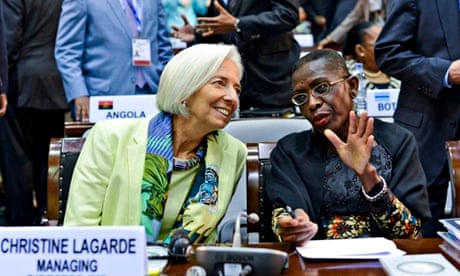African governments and the International Monetary Fund (IMF) have agreed on the urgent need to harness the continent's rapid economic growth, as unrest and other political challenges temper exuberance about the future.
At a meeting in Maputo, the IMF, finance ministers and central bank governors declared that a deeper structural transformation is needed so that ordinary citizens can benefit from the boom.
While sub-Saharan Africa is among the world's fastest-growing regions, pervasive poverty and recent serious unrest in Nigeria, South Sudan, the Sahel region and possible recession in South Africa remain a worry.
"Policies need to be designed in such a way to ensure that a surge in growth can also spur structural transformation," according to the Maputo joint declaration, which was agreed after the meeting.
While government coffers have long been filled with the proceeds of mineral wealth, corruption, shady business contracts and mismanagement have meant that little filters down to people on the street.
Much of the continent lacks adequate roads and energy supplies and needs more than $90bn (£54bn) a year to improve infrastructure, according to the managing director of the IMF, Christine Lagarde.
"Sub-Saharan Africa will need to redouble efforts to harness the opportunities offered by its abundant natural resources and ensure that their fruits are equitably shared," the governments agreed.
Lagarde said policymakers had no illusions about the scale of the problems affecting Africa. "There has clearly been a solid trend of growth over the last few years, and obviously surprisingly so during the financial crisis. There are also big issues to be addressed, and potential risks on the horizon."
But she also insisted the picture was better today than in previous decades, saying: "You have to flashback, what was it like 10 years ago?"
That sentiment rings true in the summit's host country, Mozambique, where a civil war that killed almost 1 million people has given way to rapid resource-fuelled growth. The skyline of the city is dotted with construction cranes, while new cars speed down new Chinese-built roads. But Mozambicans complain that jobs are hard to come by and poverty is rife.






